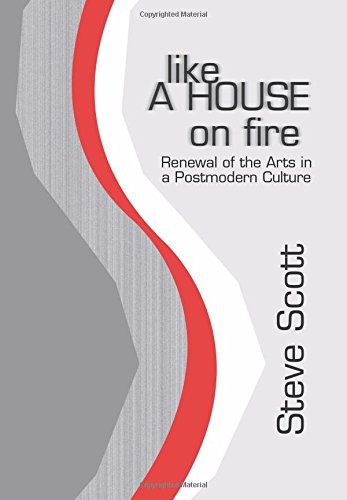
Steve Turner – Poet and Explorer (part 1 of 3)
Steve Turner combines an artist’s passion with a journalist’s curiosity.
His published poetry includes Tonight We Will Fake Love, Nice and Nasty, Up To Date, The King of Twist and Poems. His poetry collections, published for children, include The Day I Fell Down The Toilet, Dad, You’re Not Funny, The Moon Has Got His Pants On, I Was Only Asking and Don’t Take Your Elephant To School.
His books, biographies and articles are too numerous to list, but include Hungry for Heaven: Rock and Roll and the Search for Redemption, Van Morrison: Too Late to Stop Now, Cliff Richard: The Biography, A Hard Days’ Write: The Stories Behind Every Beatles Song, Jack Kerouac: Angelheaded Hipster, Trouble Man: The Life and Death of Marvin Gaye, Imagine: A Vision for Christians in the Arts, The Man Called Cash: The Life, Love and Faith of an American Legend, Amazing Grace: John Newton, Slavery and the World’s Most Enduring Song, The Gospel According to the Beatles, An Illustrated History of Gospel, The Band That Played On, and many more.
Beginning with his 1971 interview with John Lennon, Turner’s career has included published interviews with rock and roll’s biggest stars and influencers.
In part one of the Jim Wall Creativity interview with Turner, he discusses poetry, impacting the culture through art, and “being there.”
ON POETRY
Jim Wall Creativity (JWC): In your book, Imagine: A Vision for Christians in the Arts, you quote Don Paterson as having said, “‘Poems should either surprise or frighten the poet who is writing them.” Have you ever been surprised or frightened by your poems?”
Turner: I think the best ones are always a bit of a surprise – the ones you write and then you go, “Wow, I’ve just written that.” Then, you read it aloud and go back to it the next day, and you want to share it with your wife. Sometimes, I look back at things I wrote forty years ago and think it’s not bad for however old I was at that time.
JWC: If I could push that out just a little bit, what is it that strikes you about earlier material that brings you a sense of, “Ok, this is not so bad after all?”
Turner: I suppose if it’s true, if it’s wise, then it lasts. The stuff that is embarrassing is when it’s not very wise, or it’s rhetorical.
JWC: Do you have a heightened sense of emotion one way or the other when you write poetry that would almost suggest you’re touching on an area of authenticity – going back to the Paterson quote?
Turner: I think you have to work at it. Well, much more after you’ve written your first book, and presumably for musicians after you’ve recorded your first album. It doesn’t come as easy because in your first collection, or your first record, you’re drawing on twenty-odd years of life and ideas. And then suddenly you’re drawing on one or two years, however quickly you have to turn things round. So there’s more craft involved as you go on. You can’t wait for special poetry moments, or whatever. You just have to dig at it, and then you find the poetry moment. But you can’t just sit waiting for inspiration to strike.
JWC: One last question regarding your poetry. How does one go about improving their craft as a poet?
Turner: I think listening to other people, reading other people, is really important. In music, most people have listened to quite a wealth of material by the time they’re twenty, for example, because it’s just in the air. But most people wouldn’t naturally have read quite a lot of poetry by the age of twenty.
Some people think they can go without reading anyone else, thinking, “As long as I express myself,” that somehow it’s going to be good. But, it’s so important to see what other people have done before you, and to get some conception of the history of poetry and where you fit into the stream. It’s wise to know where you’re fitting in and what’s gone before. It is so easy to think you’re the first person ever to write about such-and-such a subject. It’s good to become aware of how other people have tackled it in the past.
IMPACTING THE CULTURE THROUGH ART
JWC: Can Christians impact culture through their art? If yes, how?
Turner: Simply by being there, by making a contribution that’s coming from a different worldview. It gives people an opportunity to look at the world the way you look at it. When Christians make a contribution, it just adds to the mix.
When I as growing up, I certainly felt that, in rock music (which was really important to me), there was no Christian contribution at all. If you wanted to hear any Christian contribution it was like a sideshow really. It wasn’t the main event at all.
JWC: That’s an interesting observation.
Turner: If you were a reader of Rolling Stone, for example, which was the popular culture journal of the era, you could happily read that magazine and not know of any Christian contribution at all. Although there were (Christian) people making records and giving concerts, they were not sufficiently potent enough to warrant coverage by magazines like that. So it’s partly that the magazines ignored them. But it was also partly by choice; they had chosen to operate outside the system and put their concerts on in church and sell their records through Christian bookstores. So (in that era), you could happily be a consumer at Tower Records, or read about music in Rolling Stone, and never encounter a Christian voice at all.
JWC: How has that changed since the 1960s?
Turner: Take as an example, John Lennon giving an interview at the end of 1970 to Jann Wenner, the publisher of Rolling Stone. Lennon talked about the Beatles being over, God being over, and all the stuff on his first solo album. And that seemed to be the final word on the subject, as far as rock culture went.
Then you get to thirty-odd years later, Jann Wenner interviewing Bono, and Bono’s talking about prayer, and reading the Bible, etc. It put those kinds of things on the agenda, whereas they hadn’t been before. You had somebody the regular music listener was aware of, and in a very natural way, this person was being asked questions about prayer and the Bible, about justice, and stuff like that. I think that U2, for example, kind of put that those things back on the agenda. You couldn’t just brush it away so easily.
JWC: Do you sense that there might be other Christian artists doing an effective job of just getting to the marketplace, getting to the marketplace of ideas? Not necessarily commercial – but getting into the mix of thoughts and ideas the way that Bono has?
Turner: There are a lot of people around. They’re not all selling out Madison Square Garden. But, a lot of younger artists that I come across are doing stuff. Because, whereas maybe in the sixties, these same people, if they were from Christian families or they’d become Christians, they would’ve thought, “Well, I’m a Christian; I’m a musician. Therefore, I need to sing Christian music, Gospel music” – call it whatever you will: “Jesus Rock.” That seemed to be the main possibility, or giving it all up. But, the existence of people like U2 has made other options seem possible. So, people are still free to sing music to churches or create worship music, but they’re not the only options now.
I met this group called The Fray from America. For them, it just seems like a natural thing. They don’t make a big thing of it – you’re four guys and you’re Christians, you make music. They maybe started out in their church, but it didn’t seem unnatural to want to just be a band, express themselves, and sell records. I don’t think they’ve been through quite the same conflicts as people would have in the previous generation.
There is a danger, though. I’ve had people say to me, “Oh, it’s wonderful this person is a photographer for Vogue magazine and they’re a Christian!” In one sense, it’s good that they’re there. But, if they’re just following the Vogue approach to fashion, and beauty and body-shape, and uncritically just going along with the way things are, then that’s not much of a great leap forward at all. It would be like someone saying about a Marxist, “Oh, it’s wonderful! We got a guy working for the Bank of America.”
I think Marxists and feminists are probably good examples of people with real strong points of view, which touch a lot of areas of life. They view the whole of culture through their perception and try to make (art) work that reflects their view. An ardent feminist would not think it would be great to be working for Playboy or something like that. They wouldn’t think that was a great achievement for feminism. Christians sometimes think that having played a part in a Hollywood film or something, that that’s a kind of a big deal for Christianity. It could be, but not if you make compromises on the way, or don’t say anything at all.
BEING THERE, WHILE DEEPENING OUR SPIRITUAL LIVES
JWC: You mentioned “being there.” In the last chapter of Imagine: A Vision for Christians in the Arts, you talk about the need for Christians to “be there” – a reference to the Kosinski book, and later the movie with Peter Sellers. There are struggles that are unique to the Christian artist – to be in the world, to “be there,” but yet there’s the deep need for them to be attending to their spiritual lives. What encouragement would you have for Christians as they’re balancing their being in the world, being artists, and yet at the same time deepening their spiritual lives?
Turner: I’ve seen a lot of people coming out of a church background and thinking, “I want to influence Hollywood,” or “I want to influence the music industry,” or have grand visions like that. But, it can be so easy, once you get a taste of Hollywood, or get a taste of the music industry to get intoxicated with it. They start loving the industry, or the approval they’re getting, much more than the idea of incorporating some different view of the world in their work. Some people in the end think, “Actually, I quite like this life. And I’d rather have this than not have it. And if speaking out about something, or even being known as a Christian is going to cause me a problem, then maybe I’ll keep my mouth shut.”
It gets so easy to be compromised. And I think that’s less likely to happen if you’re involved in the church. It keeps people grounded.
I’m sending the chapters of my new book on popular culture to different people. I sent one to Patty Heaton (from the TV series Everybody Loves Raymond.) She said she’s so glad that she became well-known after she got married and had children and was grounded. She thought if it had happened to earlier in her life, or if she hadn’t had any struggle, she’d have been much more likely to have been overwhelmed by it all.
I think church actually forces you to be with people you wouldn’t normally be with. It forces you to be with people who maybe don’t care much about the fact that you make films, or whatever it is that you do. You’re just – quite rightly – an ordinary Christian to them.
As an artist you’re giving out a lot. And a lot of what you’re giving out has to do with ideas. So, to give out a lot, you gotta take in a lot. If you’re not taking in from a church context, you’re taking in from popular culture – from TV, newspapers, the internet, whatever’s around you. It would be very easy to go with the flow; it’s the most natural thing to do. You jump in the river and it’s going in that direction there; you just bob around and go down. If you’ve got to cut across the river, or walk back up the river, then that’s really difficult. And yet as Christians, I don’t think we have the option of going with the flow in that sense. Sometimes you are going with it, but you’ve also got to zigzag across it, and turn back, and that’s why we need each other. Plus, I think that you learn a lot of Christian truths, not simply by reading something and remembering it, and underlining it, but by actually doing something – participating in the groups in a church, talking to people. There’s some value to corporately learning. The disciples never read books, did they? They heard things and then they were just doing things. In the history of Christianity most Christians would’ve been illiterate.
JWC: You talked about your conversations with Malcolm Muggeridge in Imagine: A Vision for Christians in the Arts. It would seem that, if you are an actor, perhaps it would be great to be in a Hollywood movie. But, for the Christian there seems to be this whole other dimension, this life, and this vitality, that has to emanate from a relationship with Jesus.
Turner: Not everybody in the arts or media is in a controlling position, particularly if you’re an actor, for example. If you’re a screenwriter, you’ve got a certain amount of control because it may well be your idea; you’re shaping the character, you’re creating the narrative arc. But, if you’re a character actor, for example, you’re acting out other people’s ideas. I think it’s much harder.
Or, if you’re a session musician, you don’t really have a lot to say about the worldview of the track. Other people are much more in the driving seat. It’s their vision; it’s their project.
But, the people that might be the session drummer or the character actor may have a huge impact through their relationships with people. Malcolm Muggeridge said there might be some typist at the BBC who’s having far more impact than some front-of-the-camera person.
I think whatever you do, something of your worldview comes over.
JWC: So, there has to be excellence there. But then that excellence manifests itself in relationships.
Turner: Billy Maxwell is a drummer, and that’s what he’s done all his life. I don’t know if Billy’s ever written a song, but he’s valued for turning up on time, doing the job, treating people well, talking well of other people when they’re not there.
By the way, I don’t agree with this thing that, if you’re a Christian drummer or screenwriter, you should be the best in the world because you’re on God’s side and that sort of thing. We’ve all got varying degrees of talent. We’re not all blessed with genius. But, I do think you should be the best you can be.”
JWC: So, the steps toward excellence is defined by giving it the best you can, to work at your craft, to improve, to understand the history, the lineage, to put your heart and soul into it. But you’re not necessarily defined as being ‘the best’ in any one field.
Turner: Surely, what God asks is, “Are you going be good and faithful servant?” The (creative) gifts are not just there to make money, or get attention. They are something of value to give to other people.
JWC: There are a lot of Christian artists who are independent. What encouragement would you give to the vast majority of Christian artists who practice their art as an avocation? In other words, they might have a small following, but are not able to make a living from their art.
Turner: It can be just a case of being faithful in small things. It depends on why they are not able to make an income. I mean, the worst reason for not being able to make an income is because what you do is either not very good or not wanted by people. And, it could be not wanted because it’s just a very niche interest – something which may never have a wide audience, like being a specialist in Appalachian music. A lot of jazz is very accomplished but not listened to by large numbers of people.
There are people that may consider that they’re misunderstood, but the real reason is that they’re just misguided, maybe? They think God wants them to be an actor or whatever. But if they were to ask around maybe that’s not so.
We’re in difficult more times when people aren’t spending money in quite the same way that they were. And, people think, “If I can get this much for free on the internet, why should I bother to pay for it?” I suppose they’re a lot of musicians having to use more imaginative ways of getting their stuff out.
There’s a girl I know, Kelley McRae, who’s American. She’s been touring around in a camper van, and just arriving in the city and doing gigs at friends’ houses – taking music back to the pre-music industry days where you actually had much more face-to-face contact with people.
You’ve gotta be more imaginative. I’ve warned Christians that go to the attitude of being miserable and praying that God will make it all better for you. For most people in the world, if you can’t make money out of something, then you have to go elsewhere. We shouldn’t expect some sort of magic that God’s going to say, “I’m going to make sure that your tap dancing provides you with a huge income.” There needs to be some sort of realism and common sense there.


